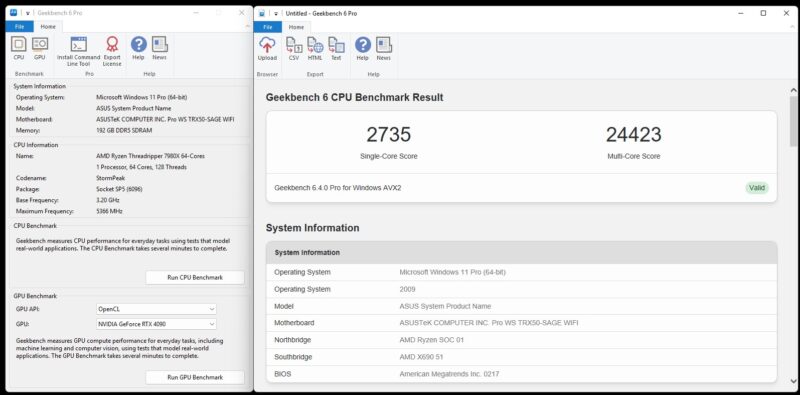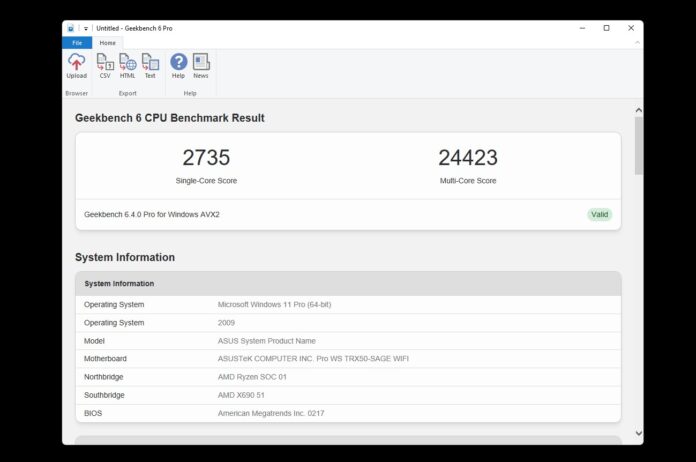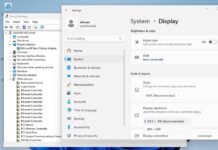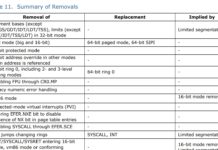Today, Geekbench 6.4 was released. The benchmark is popular, especially for lower-end consumer devices because it is easy to run. With the new Geekbench 6.4 we have a benchmark suite that should be compatible with Geekbench 6.3 scores. It is also designed to support more extensions for future CPUs.
Geekbench 6.4 is Here with Support for Upcoming CPUs
The Geekbench team sent out this list of enhancements for Geekbench 6.4:
- Introduce support for RISC-V Vector Extensions. Geekbench 6.4 introduces support for RISC-V Vector Extensions, boosting the performance of workloads that leverage SIMD instructions when run on RISC-V CPUs that implement RVV.
- Improve support for Arm Scalable Matrix Extensions. Previously, Geekbench 6.3 Scalable Matrix Extensions (SME) support required CPUs to implement both SME and SME2 instructions. Geekbench 6.4 SME support now requires CPUs to either implement SME instructions or implement SME and SME2 instructions, improving compatibility and performance for upcoming CPU releases.
- Report instruction set usage. Geekbench 6.4 now reports the instruction set extensions detected and used during the CPU Benchmark (e.g., AVX2, AVX512, SME, and RVV). These reports provide insight into which instruction sets Geekbench uses during performance measurement.
- Improve CPU topology detection. Geekbench 6.4 improves CPU topology detection, in particular enhancing detection on Linux systems with ARM and RISC-V processors. (Source: Geekbench e-mail)
Just to test it out the note that said that Geekbench 6.3 and 6.4 scores are comparable, we have run it on a number of systems at this point.

So far, the scores so far seem to be in the same ballpark as Geekbench 6.3.
Final Words
It is great to see the new version supporting more Arm and RISC-V instructions as that is important for new CPUs. At the same time, those wishing to see scaling like we saw in Geekbench 5 for larger core count CPUs are going to be disappointed. Due to the focus of the test, it is still better suited for smaller consumer systems than servers or even higher-end workstations.




